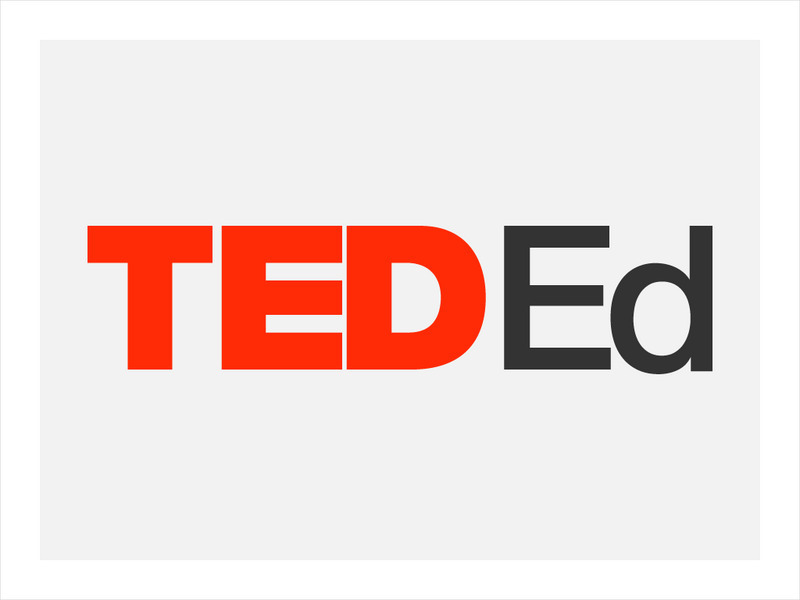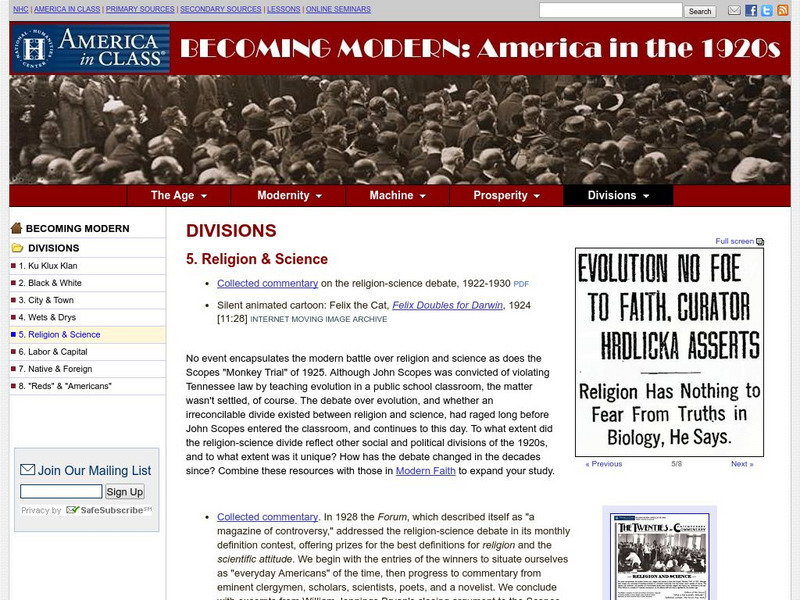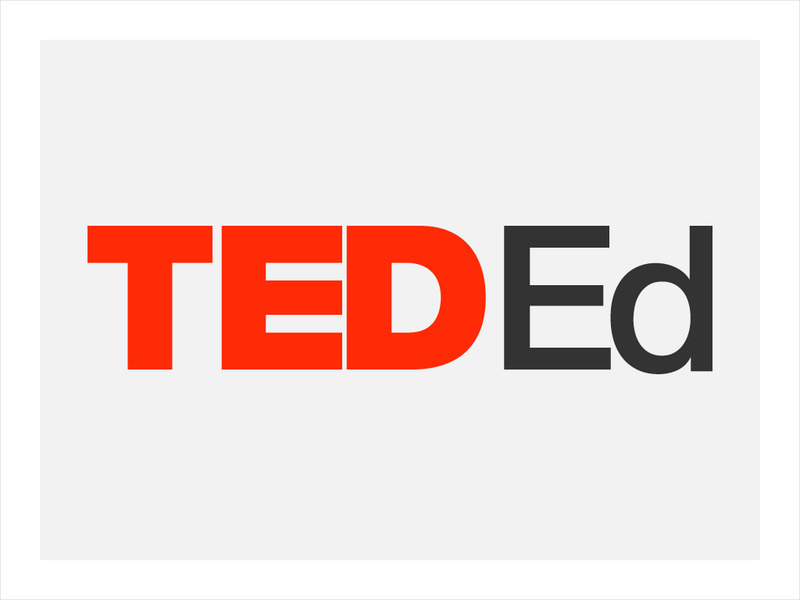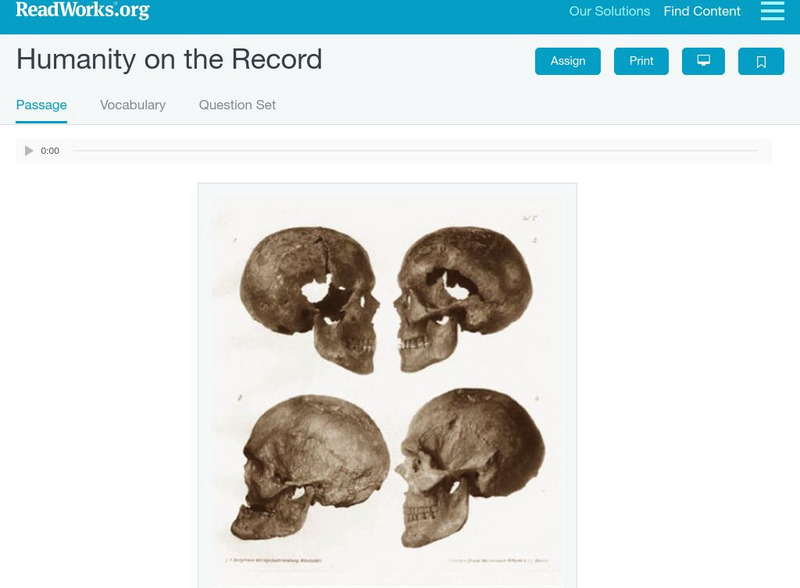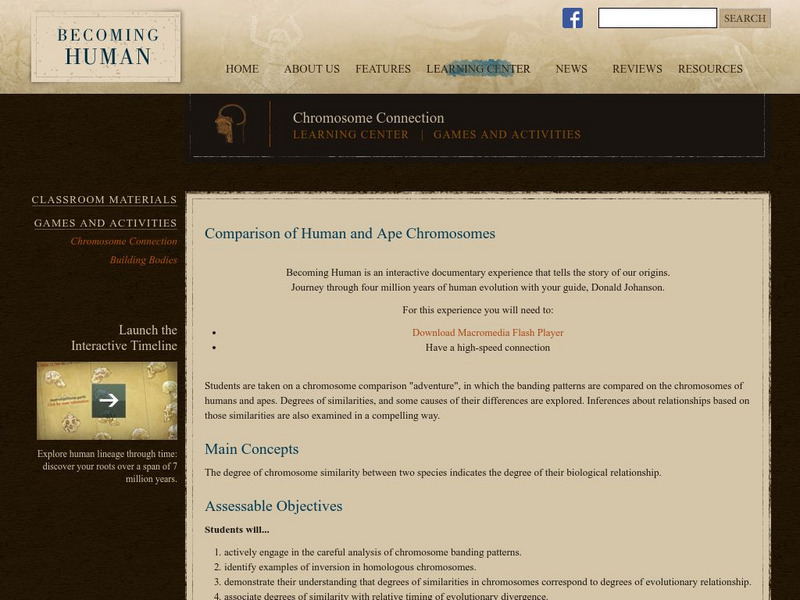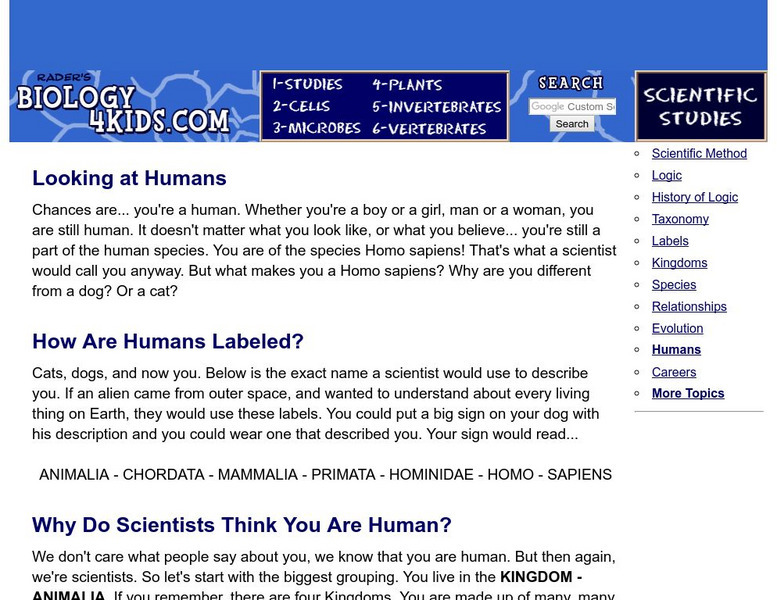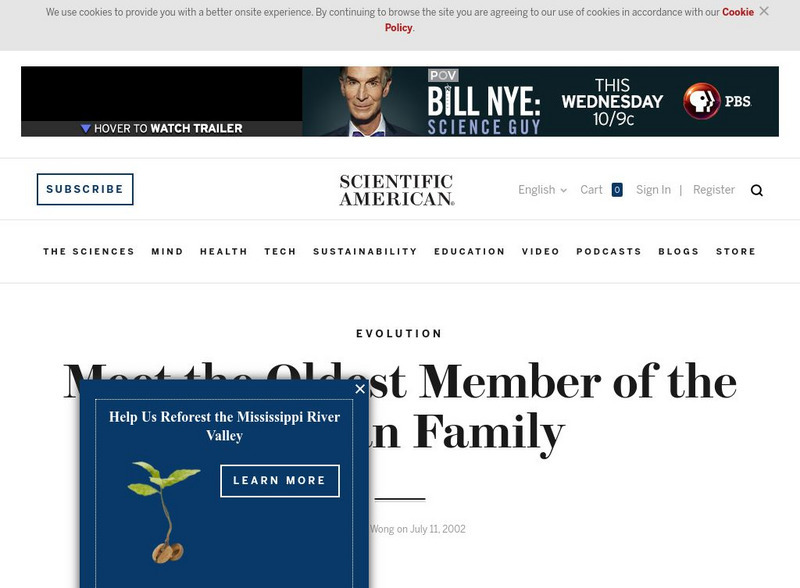TED Talks
Ted: Ted Ed: Why Are We the Only Humans Left?
Just 50,000-100,000 years ago, Earth was home to three or four separate human species, including our most famous cousins: the Neanderthals. New research has shown that Neanderthals were not the brutish, unintelligent cavemen that...
National Humanities Center
National Humanities Center: America in Class: America in the 1920s: Religion & Science
The National Humanities Center presents collections of primary resources compatible with the Common Core State Standards - historical documents, literary texts, and works of art - thematically organized with notes and discussion...
TED Talks
Ted: Ted Ed: Are We Ready for Neo Evolution?
Medical ethicist Harvey Fineberg shows us three paths forward for the ever-evolving human species: to stop evolving completely, to evolve naturally- or to control the next steps of human evolution, using genetic modification, to make...
University of Utah
University of Utah: learn.genetics: Ptc: The Genetics of Bitter Taste
Read about the PTC gene, and listen to scientists discuss this accidental discovery which lead to important clues about human evolution.
Khan Academy
Khan Academy: Charles Darwin's Evidence for Evolution
An article reviewing over the life of Charles Darwin and his evidence of evolution. Find out how this young naturalist who took a trip around the world collecting evidence about how organisms have changed over time.
Khan Academy
Khan Academy: Quiz: How Did the First Humans Live?
15 question quiz on the topic of the evolution of humans and how the first humans lived.
Khan Academy
Khan Academy: Activity: Human Migration Patterns
Use this activity to figure out where the first humans lived. This activity requires students to read clues and use their understanding of the clues to create a map to give them a visual representation of early humans movements.
Khan Academy
Khan Academy: Gallery: How Did the First Humans Live?
Follow the human migration with this gallery that allows you to observe how our ancestors lived and gathered food.
Khan Academy
Khan Academy: Gallery: What Makes Humans Different?
A gallery of pictures exploring how humans have evolved to use tools, use language, and much more.
TED Talks
Ted: Ted Ed: The Evolution of the Human Eye
The human eye is an amazing mechanism, able to detect anywhere from a few photons to a few quadrillion, or switch focus from the screen in front of you to the distant horizon in a third of a second. How did these complex structures...
CK-12 Foundation
Ck 12: Earth Science: Evolution, Plate Tectonics, and Climate Change Study Guide
[Free Registration/Login may be required to access all resource tools.] Summarizes the key points about three theories in Earth Science: the theory of evolution, the theory of plate tectonics, and the theory of climate change due to...
Read Works
Read Works: Humanity on the Record
[Free Registration/Login Required] An informational text about prehistoric evolution of the human race. A question sheet is available to help students build skills in reading comprehension.
TED Talks
Ted: Ted Ed: Evolution's Gift of Play, From Bonobo Apes to Humans
Learn about our similarity to apes, and how they solve their problems so peacefully at times but humans, the more "advanced" species, can behave so primitively. [7:02]
TED Talks
Ted: Ted Ed: Four Billion Years of Evolution in Six Minutes
Ichthyologist and TED Fellow Prosanta Chakrabarty dispels some hardwired myths about evolution, encouraging us to remember that we're a small part of a complex, four-billion-year process- and not the end of the line.
Lin and Don Donn
Lin and Don Donn: Who's Who of Early Man
The little cave man guy with a club welcomes you to the site. Did early man look like him? Mr. Donn has put together a Cheat Sheet of Who's Who of Early Man beginning with the famous Lucy and ending with men that looked a lot like us!
PBS
Pbs News Hour Extra: Scientists Discover Oldest Human Ancestor
Scientists have recently published their research into fossil bones from Ethiopia that they say came from an ancestor common to both humans and chimpanzees. They have named the ancestor Ardipithecus ramidus. In the articles and video,...
McGraw Hill
Glencoe Biology: Human Ancestry: Self Check Quiz
A five question, self-checking concept check over human ancestry and evolution.
Other
Becoming Human: Comparison of Human and Ape Chromosones
Have you ever wondered how closely we are related to other primates? Join this chromosone comparison adventure to compare the banding patterns of human chromosones to those of apes.
Biology 4 kids
Biology4 Kids: Looking at Humans
Find out about the human species, and why our physical characteristics set us apart form other species.
Scientific American
Scientific American: Oldest Member of the Human Family
This article, published by Scientific American (July 11, 2002), highlights the discovery of a nearly complete skull of the oldest and most primitive member of the human family known yet. This fossil, found in central Africa, contains a...
PBS
Pbs Learning Media: Life's Grand Design
Are nature's complex forms evidence of "intelligent design"? In this Evolution essay, biologist Kenneth Miller explains how the processes of evolution account for complex structures such as the human eye.
PBS
Pbs Learning Media: Laetoli Footprints
This Evolution video segment describes how the famous track fossils known as the Laetoli footprints might have been formed and what they can reveal about the creatures who left them.
PBS
Pbs Teachers: In Search of Human Origins, Part Ii
Investigate human evolution by comparing height data of North American boys from 1890 and 1960 and discuss the significance of the data in terms of possible reasons for the evolutionary trends identified in the comparisons.
Other popular searches
- Human Evolution Webquest
- Stages of Human Evolution
- Human Evolution Cladogram
- Human Evolution Chart
- Human Evolution Web Quest
- Human Evolution Skull
- Human Evolution Food Chain
- Evidences of Human Evolution
- Human Evolution Skull Lab
- Human Evolution Cardiogram
- Human Evolution Dogs
- Human Evolution Time Line


